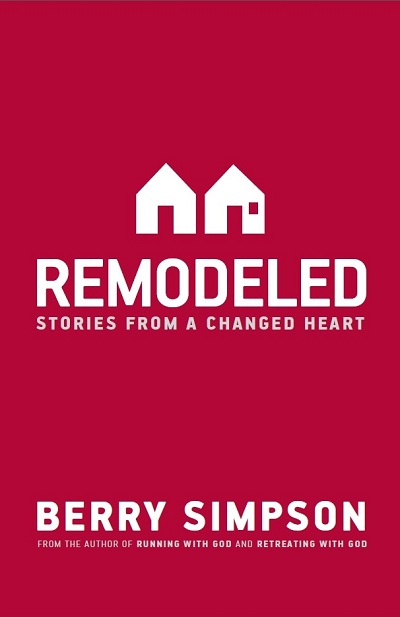Do you have sacred places, thin
places, where God once spoke to you? Do you ever go back to reconnect?
One day last week I listened to a
Mosaic podcast by Hank Fortner, and he reminded me of one of my favorite Bible
stories – about the time when God stopped the Jordan River so the people could
walk across.
Now the Jordan is at flood stage all during harvest. Yet
as soon as the priests who carried the ark reached the Jordan and their feet
touched the water’s edge, the water from upstream stopped flowing. (Joshua 3:15-16,
NIV)
Those priests were brave men, walking into a flooded river while
carrying the heavy ark. God didn’t stop the water until they took the
initial risk of stepping in. And if that wasn’t enough, they stayed in the
middle of the river to show the way.
The priests who carried the ark of the covenant of the Lord
stopped in the middle of the Jordan and stood on dry ground, while all Israel
passed by until the whole nation had completed the crossing. (Joshua 3:17, NIV)
I’ve read that story, even taught
that story, many times through the years, but this time I couldn’t help but
imagine one of those priests sneaking back down to the same spot on the
riverbank, years later, after the conquest was over, and putting his feet in the
water to see if it would stop again.
Maybe he was a little sad that it
didn’t work a second time, but even happier to know it was God who did the
stopping and not his own magic feet. Wouldn’t you rather have God than magic
feet?
I imagine that priest returning
often to put his feet in the water, to feel the coolness, to remember the time
when the river stopped, to relive the moment of God’s power and authority and grace,
allowing the water to draw him closer to God once again. Spoiled to the
supernatural, he wanted more.
There’s more to the story: the
twelve stones.
So the
Israelites did as Joshua commanded them. They took twelve stones from the
middle of the Jordan, according to the number of the tribes of the Israelites,
as the Lord
had told Joshua; and they carried them over with them to their camp, where they
put them down. Joshua set up the twelve stones that had been in the middle of
the Jordan at the spot where the priests who carried the ark of the covenant
had stood. And they are there to this day…. Joshua said to the Israelites, “In
the future when your descendants ask their parents, ‘What do these stones
mean?’ tell them, ‘Israel crossed the Jordan on dry ground.’ (Joshua 4:8 – 22,
NIV)
And so, I imagine my priest starring
at that pile of rocks, a permanent reminder of God’s power. Maybe, when his
life was especially hard, he put his hands on them just to remind himself of
God’s goodness. Maybe he even sat on the ground with his back leaning against
the pile, letting the heat in the rocks soak into his exhausted body, like the
grace of God soaking onto his heart.
I don’t think I’m off base here. In
his phenomenal book, Wild Goose Chase,
Mark Batterson asked: I wonder if Peter ever rowed out to that spot where he
walked on water? Did Zacchaeus ever take his grandchildren back to climb the
sycamore tree? Did Lazarus ever revisit the tomb where he spent four days? Did
Paul ever ride out to the mile marker on the Damascus Road?
Every once in a while we need to go
back to the sacred places and celebrate what God has done. Reconnect to the
supernatural. I’ve done that a few times in my life. I think of it as anchoring
a memory.
One day in 1999 when I was driving back to Midland from a drilling
rig visit, I stopped in Brownfield and changed clothes in a fast food
restaurant parking lot (in the privacy of my car, that is) to run down Highway 137,
one of my first “adult” routes. It was in September 1980, while running down that
very road, the immense responsibility of being a brand new father washed over
me all at once. At the turnaround, I made a commitment to step into the role,
and I was a different man running back home. I returned to Highway 137 nineteen
years later because I wanted to smell the air and remember the texture of a
road that played an important part in my new life as a husband and father.
Another story: One morning in May
2008, at a Wild at Heart Advanced Camp at Crooked Creek Ranch, Colorado, I
returned to a concrete picnic table where God spoke to me in the deepest
emotional experience of my life. I wanted my friend Eric to take a photo so I
wouldn’t forget, or diminish, what happened there. I still look at that photo
often, to remind myself that I didn’t fanaticize the whole story.
How about you? Have you returned to
a sacred place where God once spoke? Have you leaned against the rocks to feel
the heat of God’s grace?
“I run in the path of Your
commands, for You have set my heart free.” Psalm 119:32
To learn about Berry’s books, “Running With God,” go to www.runningwithgodonline.com , or “Retreating With God,” go to www.retreatingwithgod.com ,… Follow Berry on Twitter at
@berrysimpson or on Facebook … Contact Berry directly: berry@stonefoot.org … To post a comment or subscribe to
this free journal: www.journalentries.org










